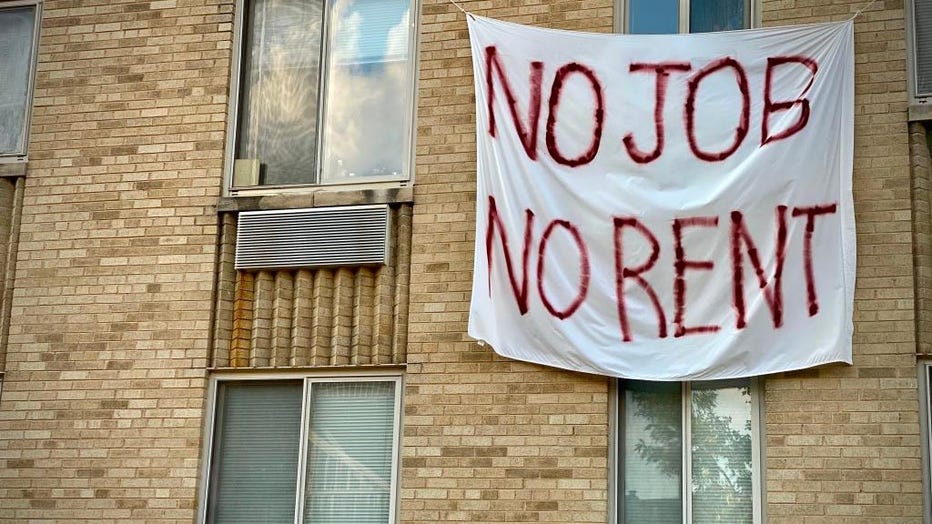CDC directs halt to renter evictions through end of 2020 amid coronavirus pandemic
WASHINGTON - The Trump administration has issued a directive halting the eviction of certain renters though the end of 2020 to prevent the spread of the novel coronavirus.
Federal, state and local governments have approved eviction moratoriums during the course of the pandemic for many renters, but those protections are expiring rapidly. A recent report from one think tank, the Aspen Institute, stated that more than 20 million renters live in households that have suffered COVID-19-related job loss and concluded that millions more are at risk of eviction in the next several months.
RELATED: FDA chief says he could approve COVID-19 vaccine before completion of Phase 3 clinical trials
The administration's action stems from an executive order that President Donald Trump issued in early August. It instructed federal health officials to consider measures to temporarily halt evictions. The Centers for Disease Control and Prevention followed up Tuesday by declaring that any landlord shall not evict any “covered person” from any residential property for failure to pay rent.

A banner against renters eviction is displayed on a controlled rent building in Washington, D.C. on Aug. 9, 2020.(Photo by ERIC BARADAT/AFP via Getty Images)
Senior administration officials explained that the director of the CDC has broad authority to take actions deemed reasonably necessary to prevent the spread of a communicable disease.
Renters covered through the executive order must meet four criteria. They must:
— Have an income of $198,000 or less for couples filing jointly, or $99,000 for single filers.
— Demonstrate they have sought government assistance to make their rental payments.
— Affirmatively declare they are unable to pay rent because of COVID-19 hardships.
— Affirm they are likely to become homeless if they are evicted.
Officials said local courts would still resolve disputes between renters and landowners about whether the moratorium applies in a particular case.
Brian Morgenstern, a deputy White House press secretary, said Tuesday's announcement means that people struggling to pay rent due to COVID-19 would not have to worry about being evicted and risking the spread of the disease or exposure to it.
Trump’s Democratic rival, Joe Biden, called on Aug. 1 for Congress to enact a “broad emergency housing support program” to prevent evictions and shore up landlords. Congress enacted an unprecedented $2.3 trillion pandemic rescue package in March that paused evictions in most federal subsidized housing, but that moratorium has expired and Congress and the White House have been in a monthslong stalemate over new relief legislation.
Diane Yentel, president and CEO of the National Low Income Housing Coalition, said the order will provide relief for millions of anxious families, but added that the action delays rather than prevents evictions.
“While an eviction moratorium is essential, it is a half-measure that extends a financial cliff for renters to fall off when the moratorium expires and back rent is owed," Yentel tweeted.

